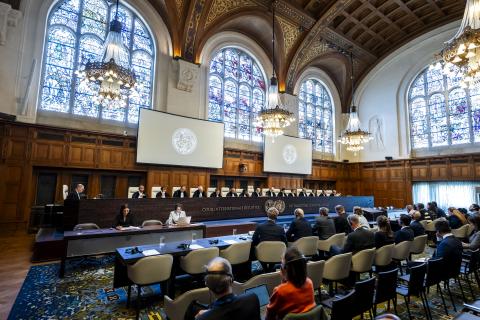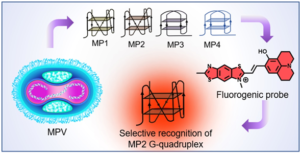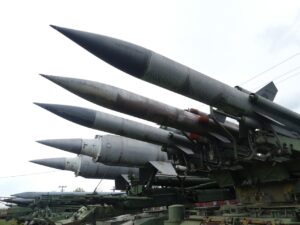
On 30 April 2024, the ICJ delivered its Order on the Request for the indication of provisional measures submitted by Nicaragua in the case concerning Alleged Breaches of Certain International Obligations in respect of the Occupied Palestinian Territory (Nicaragua v. Germany).
The Hague: In the case filed by Nicaragua against Germany concerning Alleged Breaches of Certain International Obligations in respect of the Occupied Palestinian Territory (Nicaragua versus Germany), the International Court of Justice (ICJ) today found that the circumstances were “not such as to require the exercise of its power under Article 41 of the Statute to indicate provisional measures.
The Court delivered its Order on the request submitted by Nicaragua, which requested the Court to indicate provisional measures, pending the Court’s determination on the merits of the case, with respect to Germany’s “participation in the ongoing plausible genocide and serious breaches of international humanitarian law and other peremptory norms of general international law occurring in the Gaza Strip”.
Based on the “factual” information and legal arguments presented by the Parties, the Court concluded that, at present, the circumstances were not such as to require the exercise of its power to indicate provisional measures.
The Court also recalled its Order of January 26, 2024, and Order of March 28, 2024, delivered in the case concerning the Application of the Convention on the Prevention and Punishment of the Crime of Genocide in the Gaza Strip (South Africa v. Israel), in which it affirmed that it remains deeply concerned about the situation in Gaza. The Court furthermore considered that it was “particularly important to remind all States of their international obligations relating to the transfer of arms to parties to an armed conflict, in order to avoid the risk that such arms might be used to violate the [Genocide Convention and the 1949 Geneva] Conventions [on international humanitarian law]”, and that “all these obligations are incumbent upon Germany as a State party to the said Conventions in its supply of arms to Israel”.
The ICJ reaffirmed that the decision given in the present proceedings “in no way prejudges the question of the jurisdiction of the Court to deal with the merits of the case or any questions relating to the admissibility of the Application or to the merits themselves. It leaves unaffected the right of the Governments of Nicaragua and Germany to submit arguments in respect of those questions”.
Finally, the Court found that there being no manifest lack of jurisdiction, it could not accede to Germany’s request to remove the case from the Court’s docket.
It may be mentioned that on March 1, 2024, Nicaragua filed in the Registry of the Court an Application instituting proceedings against Germany concerning alleged breaches of certain international obligations in respect of the Occupied Palestinian Territory. The Application contained a Request for the indication of provisional measures. Nicaragua’s lawsuit said that it was “enabling Israel to genocidal acts”, and that “Germany has provided political, financial and military support to Israel fully aware at the time of authorization that the military equipment would be used in the commission of breaches of international law by this State and in disregard of its own obligations”.
At the end of its oral observations, Nicaragua requested the Court that “as a matter of extreme urgency, pending the Court’s determination of this case on the merits, and after recalling to the Parties the obligation of compliance with humanitarian law as well as of the obligation of cooperation to bring to an end all serious breaches of peremptory norms of international law, to indicate the following provisional measures with respect to Germany in its participation in the ongoing plausible genocide and serious breaches of international humanitarian law and other peremptory norms of general international law occurring in the Gaza Strip, as well as in other parts of Palestine, namely, to order that:
- Germany must immediately suspend its aid to Israel, in particular its military assistance, export and authorization of export of military equipment and war weapons, in so far as this aid is used or could be used to commit or to facilitate serious violations of the Genocide Convention, international humanitarian law or other peremptory norms of general international law;
- Germany must immediately ensure that military equipment, war weapons, and other equipment used for military purposes already delivered by Germany and German entities to Israel are not used to commit or to facilitate serious violations of the Genocide Convention, international humanitarian law or other peremptory norms of general international law;
- Germany must resume its support and financing of UNRWA in respect of its operations in Gaza.”
In the Order, the Court first recalled that under Article 41 of the Statute, it had “the power to indicate, if it considers that circumstances so require, any provisional measures which ought to be taken to preserve the respective rights of either party”. In the present proceedings, the Court considered that it must first ascertain whether Nicaragua had sufficiently shown that the circumstances as they now presented themselves to the Court were such as to require the exercise of its power to indicate provisional measures.
The Court noted that, according to Nicaragua, by providing weapons to Israel and by suspending the provision of funds to UNRWA, the United Nations Relief and Works Agency for Palestine Refugees in the Near East, Germany had failed to comply with its obligations under the Genocide Convention and international humanitarian law, including the Geneva Conventions of August 12, 1949, and the Additional Protocols of June 8, 1977, and its intransgressible principles.
Nicaragua contended that, for the year 2023, the German Government had authorized exports of “military equipment and war weapons” worth more than ten times those for the year 2022. It claimed that the great majority of these were granted after the beginning of the military operation by Israel in the Gaza Strip. Nicaragua claimed that Germany could not be unaware of the situation in Gaza nor ignore the likelihood that the “military equipment and war weapons” provided by it would be used by Israel “to bomb and kill thousands of Palestinian children, women and men”.
It also claimed that Germany had not only violated its obligations to prevent and punish breaches of the Genocide Convention and international humanitarian law but that it was also “complicit in them by aiding and assisting the commission of [those] breaches”.
In response, the Court noted that Germany first stated that it had fulfilled the obligation incumbent on States parties to the Genocide Convention to prevent the occurrence of genocide by continuously using all reasonable means at its disposal to exert its influence on Israel to improve the situation in Gaza and to furnish humanitarian aid to the population of Gaza.
Germany contended that the obligation that could be derived from common Article 1 of the Geneva Conventions incumbent on non-parties to an armed conflict did not oblige a State to refrain completely from providing military support to a State involved in an armed conflict.
Germany also submitted that it had stringent licensing standards to assess whether there was any risk of serious violations of the Genocide Convention, international humanitarian law and other peremptory norms of international law by the recipient State. According to Germany, there was no evidence that the supply of military equipment to Israel by Germany would have contributed to an alleged genocide or breaches of international humanitarian law.
The Court noted that Germany was bound by the Arms Trade Treaty of April 2, 2013, and by the European Council Common Position of December 8, 2008, as amended on September 17, 2019, which defined common rules governing the control of exports of military technology and equipment.
The Court further noted that the German legal framework on the manufacturing, marketing and export of weapons and other military equipment involved an inter-agency process with consideration by at least two ministries, and potentially other ministries depending on the content of the licence application. Under this legal framework, there were two categories of military technology and equipment subject to licensing: “war weapons”, whose export required two licences, and “other military equipment”, whose export required only one licence. Under the German legal framework, for every licence that was granted, an assessment is carried out by the German Government to ascertain whether there was a clear risk that the particular item subject to licensing would be used in the commission of genocide, crimes against humanity or grave breaches of the four Geneva Conventions.
The ICJ noted in addition that, as stated by Germany, there has been a significant decrease since November 2023 in the value of material for which the licences were granted, from approximately €200 million in October 2023 to approximately €24 million in November 2023, to approximately €1 million in March 2024. The Court also noted that, since October 7, 2023, according to Germany, only four licences for “war weapons” had been granted: two for training ammunition, one for propellant charges for test purposes, and one concerning the export of 3,000 portable anti-tank weapons. The Court further noted that Israel had also approached the German Government in 2023 for tank ammunition and that no decision by Germany had thus far been made regarding this request. In addition, according to Germany, the licensing for the export of a submarine to Israel was currently pending, as only one of the two licences required for this export had so far been granted. Finally, the Court took note of Germany’s statement that 98 per cent of the licences granted since October 7, 2023, concerned “other military equipment” and not “war weapons”.
Regarding Nicaragua’s request that Germany “resume its support and financing of UNRWA in respect of its operations in Gaza”, the Court notes that Germany announced its decision to suspend its contribution to UNRWA on 27 January 2024 regarding operations in Gaza. In this regard, the Court observed, first, that contributions to UNRWA were voluntary. Second, according to the information provided to it by Germany, no new payment was due from the latter in the weeks following the announcement of its decision. Finally, the Court noted that Germany stated that it had supported initiatives aimed at funding the agency’s work, in particular through the payment of €50 million by the European Union to UNRWA on March 1, 2024, as well as providing financial and material support to other organizations operating in the Gaza Strip.
The Order was passed 14 to 1 with Judge ad hoc Awn Shawkat Al-Khasawneh appending a dissenting opinion to the Order of the Court. Judge Iwasawa said Germany’s framework governing exports of military equipment appeared robust, and Nicaragua had not shown that Germany’s conduct would give rise to any real and imminent risk of irreparable prejudice before the Court gave its final decision. According to him, the five requirements which must be satisfied for the Court to indicate provisional measures were cumulative. “Since one of the requirements for the indication of provisional measures is not satisfied, the Court is not obliged to examine the others, including the requirement of prima facie jurisdiction and the plausibility of rights,” he said.
Interestingly, there were wide speculations in a section of media that Nicaragua filed the case in the ICJ against Germany and not the US because the latter has a reservation in the Genocide Convention saying that it will not adhere to any judgments by the International Court of Justice. To a question a day before the ICJ passed its order, the US categorically stated that it found allegations of genocide in this ongoing conflict in Gaza to “continue to be unfounded”. It claimed that “when it comes to our partners in Germany, they share our convergence on the importance of doing everything we can to make sure hostages are released, to make sure that there is more humanitarian aid going into Gaza, and that everything can be done possible to make sure that this conflict ends as quickly as we can”.
– global bihari bureau





